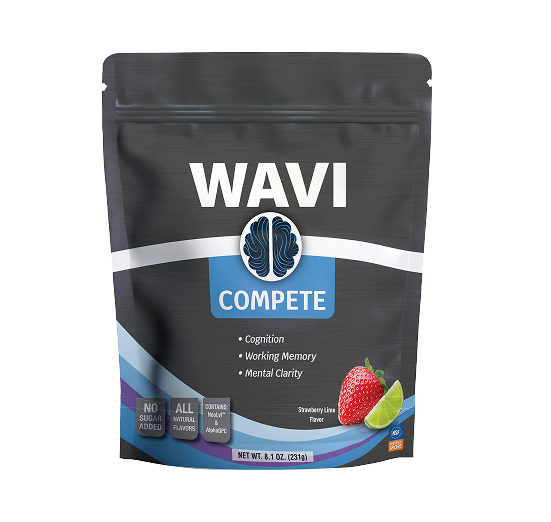What Are Nootropics? A Beginner’s Guide to Smart Drugs and Cognitive Enhancers

Nootropics, often known as smart drugs, aim to boost cognitive functions like memory and focus. Whether you're looking to enhance your creativity or simply improve your concentration, these substances come in both natural and synthetic forms. Understanding how they work and their potential benefits can be crucial, especially if you're considering trying them. But before you jump in, there are important factors to consider regarding safety and efficacy. What should you know?
Understanding Nootropics: Definition and History
Nootropics, often dubbed "smart drugs," are substances designed to enhance cognitive function, memory, and creativity. You might be surprised to learn that the term "nootropic" originated in 1972, coined by Romanian psychologist Corneliu E. Giurgea. He sought to create compounds that could improve mental performance without causing major side effects. Since then, nootropics have gained popularity, with many users turning to these substances for academic and professional advantages. They range from natural herbs like Ginkgo biloba to synthetic compounds like racetams. As you explore the world of nootropics, you'll find a diverse landscape, each promising to unlock your brain's potential. Understanding their definition and history is crucial before diving deeper into their specific benefits and uses.
How Nootropics Work: Mechanisms of Action
Understanding how these substances interact with the brain is key to appreciating their potential benefits. Nootropics work primarily by enhancing neurotransmitter activity, boosting blood flow, and promoting neuroplasticity. When you take these compounds, they can increase levels of crucial neurotransmitters like acetylcholine and dopamine, which play vital roles in memory and mood. Additionally, certain nootropics improve oxygen and nutrient delivery to brain cells, enhancing overall cognitive performance. They might also support the growth of new neurons and synapses, helping your brain adapt and learn more effectively.
Types of Nootropics: Natural vs. Synthetic
When exploring nootropics, you'll find they generally fall into two categories: natural and synthetic. Natural nootropics come from plants, herbs, or other organic sources. They're often used in traditional medicine and may have fewer side effects. Examples include ginkgo biloba, rhodiola rosea, and panax ginseng. On the other hand, synthetic nootropics are man-made compounds designed to enhance cognitive function. These might be more potent but can also carry risks of side effects or dependency. Popular synthetic options include racetams like piracetam and noopept. Choosing between natural and synthetic nootropics depends on your personal preferences, desired effects, and tolerance levels. Always research thoroughly and consider consulting a healthcare professional before diving into either category.
Potential Benefits of Nootropics: Enhancing Cognitive Function
As you explore the world of cognitive enhancement, you'll discover that many people turn to nootropics for their potential to boost mental performance. These substances may improve focus, memory, and creativity, helping you tackle challenging tasks with ease. By enhancing neurotransmitter activity, nootropics can increase alertness and reduce mental fatigue, making it easier to stay engaged throughout the day. Some users report improved problem-solving skills and heightened motivation, which can be particularly beneficial during demanding projects or study sessions. Additionally, certain nootropics might support mood stability, allowing you to maintain a clearer mindset. Whether you're studying for exams or striving for peak performance at work, nootropics could be a valuable tool in your cognitive enhancement arsenal.
Risks and Side Effects: What You Need to Know
While nootropics offer promising benefits for cognitive enhancement, it's important to be aware of their potential risks and side effects. Some users report headaches, insomnia, or digestive issues after taking certain nootropics. Stimulant-based options can increase anxiety or heart rate, which mightn't be suitable for everyone. Additionally, long-term use of some compounds could lead to dependence or tolerance, resulting in diminished effects over time. Interactions with other medications are also a concern, so it's crucial to consult a healthcare professional before starting any nootropic.
Choosing the Right Nootropic: Tips for Beginners
How do you choose the right nootropic for your needs? Start by identifying your specific goals—whether it's improving focus, enhancing memory, or boosting energy. Research various nootropics that align with these goals; some popular options include caffeine, L-theanine, and Rhodiola Rosea. Pay attention to the dosage and potential side effects, as what works for one person mightn't work for you. It's smart to consult a healthcare professional before starting any new supplement. You should also consider starting with a lower dose to gauge your body's response. Finally, keep a journal to track your experiences and adjust as necessary. Finding the right nootropic is a personal journey, so be patient and stay informed.
Conclusion
In conclusion, nootropics can be fascinating tools for enhancing your cognitive abilities, but it's crucial to approach them with caution. By understanding their mechanisms, benefits, and potential risks, you can make informed choices. Always consult a healthcare professional before diving in to ensure you're selecting the right option for your needs. Remember, what works for one person might not work for another, so take your time to find the best fit for your brainpower journey.




